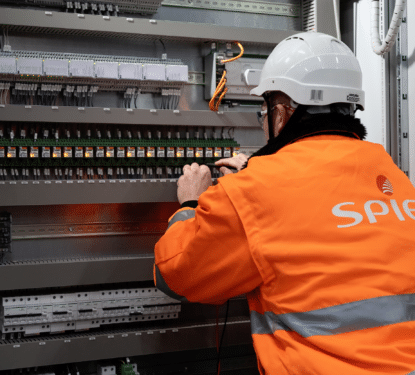For a quarter of a century the Building Automation System (BAS) industry has been working hard at delivering connectivity across all the building technical services. They have had limited success in achieving this goal - solutions have been expensive, lacked flexibility and robustness and could not achieve the ultimate goal of fully optimising and automating the buildings performance.

The solution to overcome these deficiencies is called the Building Internet of Things and the companies that are pioneering this development and shaping its future, are not BAS suppliers, but are the IT Communications, Software and Chip manufacturers. Between them they hold all the new technology to deliver the IoT content of a fully automated building. In order to do this there is also the need for drastic changes to the existing supply routes and this will have further potential to reduce the influence of the BAS suppliers.
Our report - The Transformation of BAS into the Building Internet of Things 2015 to 2020 - reviews the impact that these issues will have on some 9 categories of building automation systems equipment from building energy controls to video surveillance equipment.
Engineering and installing BAS systems will have to change and alliance with the IoT contingent is critical. The BAS suppliers appear today to be little more than spectators in the new business and unless this changes they will miss out on taking a share of a market that could be some 50% larger within 5 years. However BAS suppliers that take up the challenge will be successful in growing the business because they are the ones that interface with the customer and know what he needs.
[contact-form-7 id="3204" title="memoori-newsletter"]
New construction projects will be the first target for BIoT systems and contractual procedures will be handled through 4 main contracts. The first being the supply of the BAS services, so no problem there - business as usual but just the supply of hardware no supervisory software and the strong possibility that much of the enablement hardware such as web enabled controllers will become part of Contract 2 Enablement Hardware. Contract 3 Network Communication Services will design and install the IP Communications platform, ensuring that the Enablement Hardware will plug and play across all BAS services. Contract 4 IoT Data Services and Big Data Analytics will be the last part of the chain. All of the last 3 contracts require IT Communications skills and advanced software, expertise and skills that for the most part BAS companies lack.
That does not mean that they will be shut out of the IoT aspects of this business. The major BAS conglomerates have already acquired companies particularly with IT communication and software skills related to this business or have formed strategic partnerships to work together major software and IT companies. So these companies will get involved in Contracts 2 & 3 and possibly 4.
The reason that the IT companies are attracted to sharing the business with them is that they lack knowledge and expertise in the building construction market and they have no direct contact with the buyers of building systems and real estate owners. BAS suppliers do; And more importantly they have enormous heritage estates that will eventually be retrofitted.
BAS service companies and in particular the major conglomerates have been the most active group in moving towards a wider BIoT business and most have a strong balance sheet and plentiful reserves. This group of companies includes, amongst others Schneider Electric, ABB, Siemens, Johnson Controls and Honeywell.
Schneider Electric over the last 8 years has been a very active acquirer, particularly if we include acquisitions that interface Smart Buildings with Smart Grid. During the last 8 years they have focused on bringing together a group of companies that can deliver solutions right across the interface between Smart Buildings, Smart Grid and BIoT.
ABB, Siemens, Honeywell and Johnson Controls have pursued similar strategies and all have spent north of a $Billion on acquiring software and hardware companies covering all aspects of BIoT in the last 10 years.
Most of the manufacturers of BAS hardware have over time stopped supplying systems and get their products to market through partnerships with specialist System Integrators (SI) or distributors. Again its unlikely that this will change and their enablement hardware products will be shipped through their system integrators. The largest of these companies may well look to SI’s from the IT industry to form alliances or merge and/or acquire such companies to enable them to bid on Contract 3. But it’s more likely that Integrators from the IT industry will play a more influential role and acquire their BAS integrator counterparts.
BAS manufacturers and their SI’s can play a very important role in retrofit projects and here the supply chain will not be so clear cut because their will need to be connection to existing systems with all their different protocols. BAS manufacturers and their SI’s are in a strong position, within their heritage estate, to take control of such projects and they will work hard to win this business.



